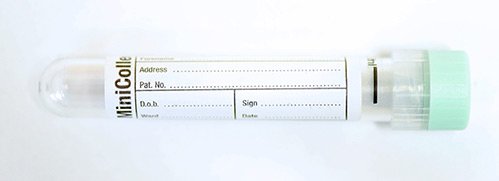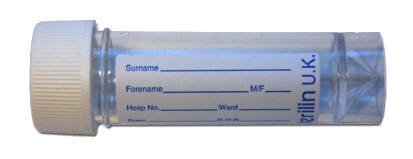Amylase
Chemical Pathology
Notes
- Amylase is found in pancreatic, parotid and to a lesser degree fallopian tissue.
- Amylase is useful in the investigation of acute pancreatitis but does have limited sensitivity and specificity. High amylase levels may also be seen in other gastrointestinal conditions.
- If pancreatitis is suspected then serum LDH, CRP, calcium and albumin may be useful as prognostic indicators.
- High serum amylase may be seen in macroamylasaemia and should be suspected if there is a raised serum amylase but no symptoms of pancreatic or parotid disease. Urine amylase may be useful in this situation.
- Whilst serum amylase is raised in parotitis (mumps) to levels found in acute pancreatitis, the test has no application in the diagnosis or monitoring of this condition.
- Urine amylase may be useful to investigate for possible macroamylasaemia (send with a simultaneous blood sample for amylase:creatinine clearance) but is not sufficiently accurate to distinguish acute pancreatitis from other intra-abdominal conditions that are associated with a raised serum amylase.
Sample requirements
For adults, blood taken into a 5mL gold top gel tube (or rust top for the Acute Unit)

For children, blood taken into a 3.5ml rust top tube:

For neonates, blood taken into a 0.8mL lithium heparin tube minicollect tube:

Urine amylase:creatinine clearance for investigation of possible macroamylasaemia
Send paired blood and urine samples (samples "a" and "b" below) immediately to the laboratory for amylase:creatinine clearance (urine must reach the laboratory in less than 2 hours of collection).
a) Urine collected into a 30mL white top Sterilin container:

b) blood taken into a 5mL gold top gel tube (or rust top for the Acute Unit):

Storage/transport
Send to the laboratory at ambient temperature as soon as possible. If unavoidable, and clinically appropriate, blood samples can be stored refrigerated overnight. Urine samples are less stable and must reach the laboratory in less than 2 hours of collection.
Required information
Relevant clinical details including surgery history e.g. post ERCP.
Turnaround times
The assays are run throughout the day and night.
The in-lab turnaround time is normally less than 24 hours.
The test can be ordered as an urgent request.
Reference ranges
Serum amylase: 28 - 100 U/L
Amylase:creatinine clearance:: 1-4 %
Further information
To learn more about amylase visit Lab Tests Online
Page last updated: 27/04/2021